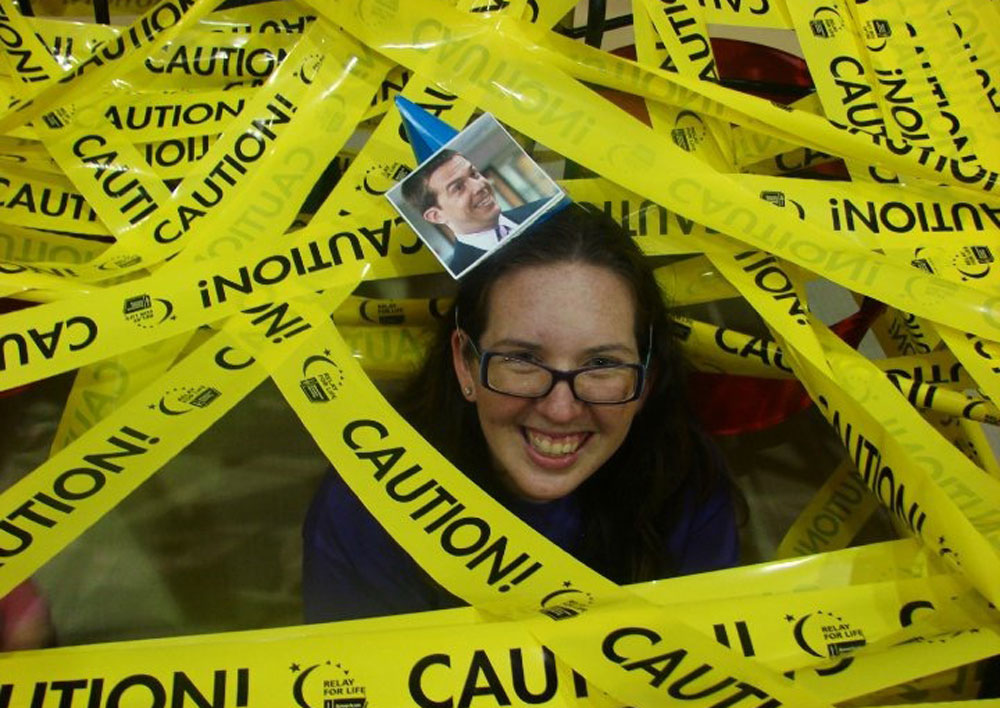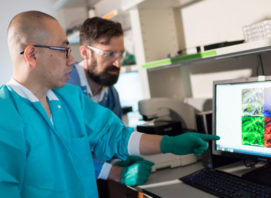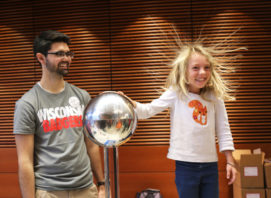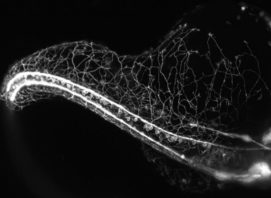Choosing happiness: Finding light in a dark situation
My homemade birthday hat was perched on the side of my head as I held a fake golden trophy in one hand and a microphone in the other. I knew I looked ridiculous, but the reason I was speaking in front of a crowd of people couldn’t have been more serious.
I was at the 2010 Relay for Life, hosted by the American Cancer Society at UNO. The theme was A World with More Birthdays and I had eagerly agreed to share my story weeks before. When the moment actually arrived, I wasn’t so sure. A sea of faces waited, patient but expectant, and I knew I couldn’t turn back.
My journey began at age 7, when I was diagnosed with leukemia. It changed everything. I learned that anything can become routine. I soon realized I could manage the daily chemotherapy treatments and found that colorful band-aids helped ease the pain. I enjoyed the Child Life volunteers, and the fun medical staff always provided laughs with each treatment. But all the efforts to maintain an upbeat environment in a dismal situation couldn’t keep the sadness away forever.
I missed going to school every day. I missed brushing my hair. I missed having a cold without needing hospitalization. I missed the days when I didn’t worry about white blood cell counts or if I had enough platelets to risk going outside. I missed normal.
I remember a conversation I had with another patient, a boy a couple of years older than me. We were discussing Winnie the Pooh, and he said he would want to be Eeyore – in fact, all the kids in the clinic were supposed to be Eeyores. Since we had cancer, we were supposed to be sad about our circumstances. When I repeated this to my mom, resigned to my Tigger-less fate, I immediately knew something was wrong.
She told me: “Don’t be afraid to cry if you’re hurt – it’s okay to be sad sometimes. But you have your moment, and then you move on. I don’t ever want to hear you choosing to be unhappy.”
I never thought of happiness as a choice, but as soon as she said it, I knew it was true. If I want to be happy, why shouldn’t I be? That was the attitude that got my family and I through those rough times, and we came out of it stronger than ever. Things happen in life that you can’t control, but you shouldn’t let them ruin the good parts as well.
In the years following my treatment, my family and I got involved with the Leukemia & Lymphoma Society and the American Cancer Society – trying to give back to those who had given to us. But outside of the close-knit community of fellow cancer patients and their families, I tried to distance myself from my cancer experience. I was trying to move forward and didn’t want to be defined by a past that mostly prompted unwanted sympathy.
The more I tried to get away from it, the more I realized it wasn’t about me anyway – it was about those who still battle the disease and the families struggling to cope. Hope is hard to come by, and so many are desperate for just a flicker of it. One of the best ways I could give back to this community was to share my story and show them the possibility of a positive end.
This brings me back to my speech at the Relay for Life event. It surprised me how readily the memories came flooding back, and how positive they seemed. I could hardly express how thankful I was to everyone who helped me through those times and how much it meant seeing such a big part of my community at the event that night. They fight for a cause they believe in. They help you to see you’re not alone. They’re the ones who bring hope.
This year, I can only offer moral support to the 2011 Relay for Life, as I’m studying at the University College Cork in Ireland for the spring. The theme of this year’s event, which will be held at the Sapp Fieldhouse from April 8 at 6 p.m. to 6 a.m. the next morning, is “50 States, 1 Cause,” with each team representing a different state. Participants fundraise, raise awareness and then take part in the 12-hour event, which consists of a variety of activities, including the Survivors Lap and the Luminaria Ceremony.
With hundreds of registered participants and thousands of dollars already raised, UNO has met to the challenge once again. I encourage everyone to get involved in some way, even if you can’t participate in the event directly. Join or donate to a relay team, buy luminaria in honor or in memory of those who’ve battled cancer or promote the cause through e-mail or social networking sites. Become a part of this community of people fighting cancer, and spread a little hope along the way.



